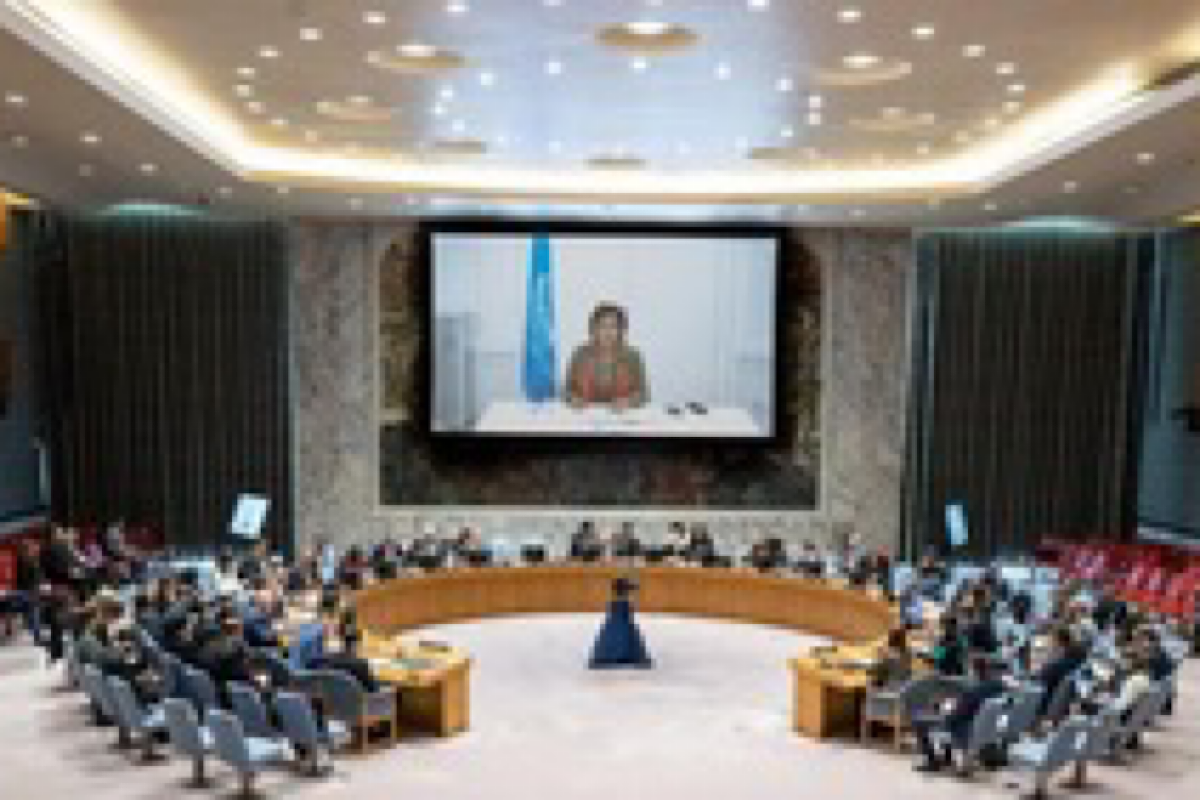UN Deputy Special Envoy for Syria, Najat Rochdi, has called for urgent de-escalation in Syria and warned of the spillover of the Israeli-Palestinian conflict.
“We remain deeply concerned about the prospect of a potentially wider escalation in Syria. The effects of the tragic developments in the occupied Palestinian territory and Israel continue to be felt inside Syria,” she told the Security Council on Tuesday.
Advertisement
On November 25, Israeli airstrikes once again hit Damascus airport, once again temporarily halting the UN Humanitarian Air Service which operates from this airport and services Syria’s humanitarian programs, she noted as quoted by Xinhua news agency report.
“Targeting civilian infrastructure is prohibited under international law.”
The attack on Damascus airport came after several other airstrikes attributed to Israel on other locations across Syria as well as reports of Israeli artillery fire into southern Syria, she said.
These strikes have coincided with reports of rocket and missile launches from southern Syria over the occupied Syrian Golan toward Israel, she added.
Near-daily reports of attacks on US forces in northeast Syria continue, mostly claimed by the so-called Islamic Resistance in Iraq, though none have been reported in the last few days. The US, which claims that groups behind these attacks are backed by Iran, have carried out two more rounds of what they say are retaliatory strikes on facilities in Syria which it claims are used by Iran’s Islamic Revolutionary Guard Corps and groups that it backs. Iran denies that these groups are affiliated with it, said Rochdi.
Meanwhile, the Syrian conflict continues in all its other dimensions, involving Syrian government forces, rebels, terrorist groups and Türkiye, she added.
“Violence continues in Syria, including spillover from Gaza and Israel. To continue such violence is to play with fire. Just one miscalculation … could ignite a dozen different powder kegs that lie within Syrian borders,” she warned.
“We need sustained de-escalation operationalised through robust channels between all stakeholders. We need the killing, injuring and displacement of civilians, and the destruction of infrastructure not just to decrease, but to end,” she noted.
Such a de-escalation of violent conflict would be a vital start, but it is not enough. The only way to tackle this unsustainable status quo is through a credible and comprehensive approach to a political solution that puts all of the issues of concern to stakeholders on the table, allowing Syrians to realise their legitimate aspirations and chart a path to restoring Syria’s sovereignty, unity, independence and territorial integrity, said Rochdi.
Attention on Syria has ebbed somewhat given the terrible crisis in the region, but the situation in Syria is too dangerous to be left unattended, she warned.
“If we do not give the Syrian parties and people a horizon of hope and a political path to resolving their conflict, I fear that the situation will boil over again and again, spilling across a region that is already in a moment of historical crisis,” Rochdi added.











